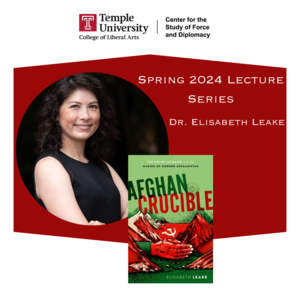On 24 December 1979, Soviet armed forces entered Afghanistan, beginning an occupation that would last almost a decade and creating a political crisis that shook the world. To many observers, the Soviet invasion showed the lengths to which one of the world's superpowers would go to vie for supremacy in the global Cold War, with disastrous results still felt today. The Soviet war, and parallel covert American aid to Afghan resistance fighters, would come to be a defining event of international politics in the final years of the Cold War, lingering far beyond the Soviet Union's own demise. Yet, by tracing a global history of 1979 and its aftermath, I show that the Cold War competition was only a small part of the story. The war was a moment of crisis not just for Afghanistan or the Cold War but international relations and the postcolonial state.
Elisabeth Leake is the Lee E. Dirks Chair in Diplomatic History at the Fletcher School of Law and Diplomacy, Tufts University. She is the author of Afghan Crucible: The Soviet Invasion and the Making of Modern Afghanistan (OUP, 2022), which won the 2023 Robert H. Ferrell Prize from the Society for Historians of American Foreign Relations.
This event is in-person and also available via Zoom.
